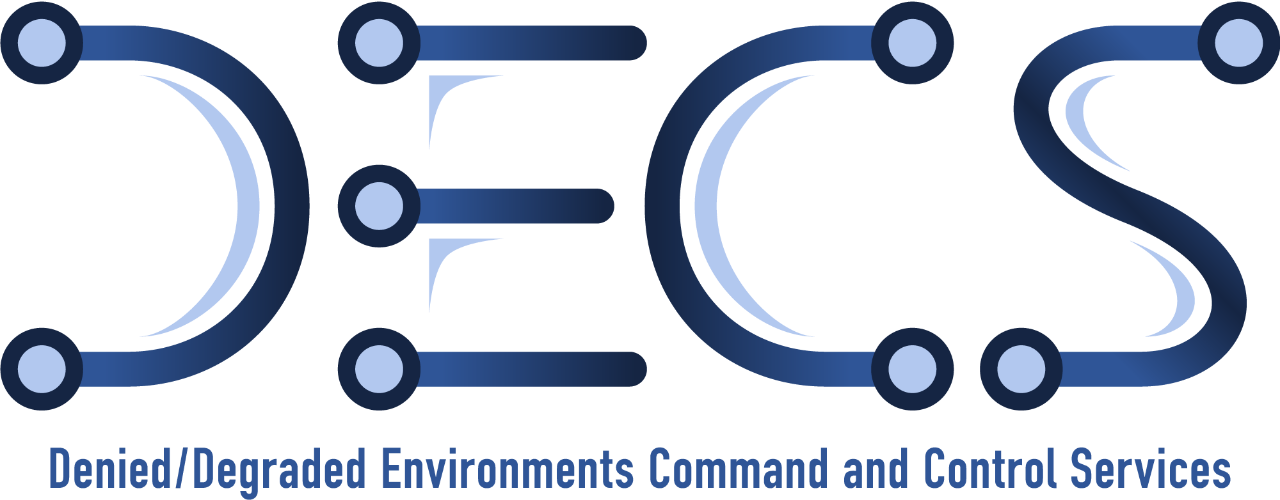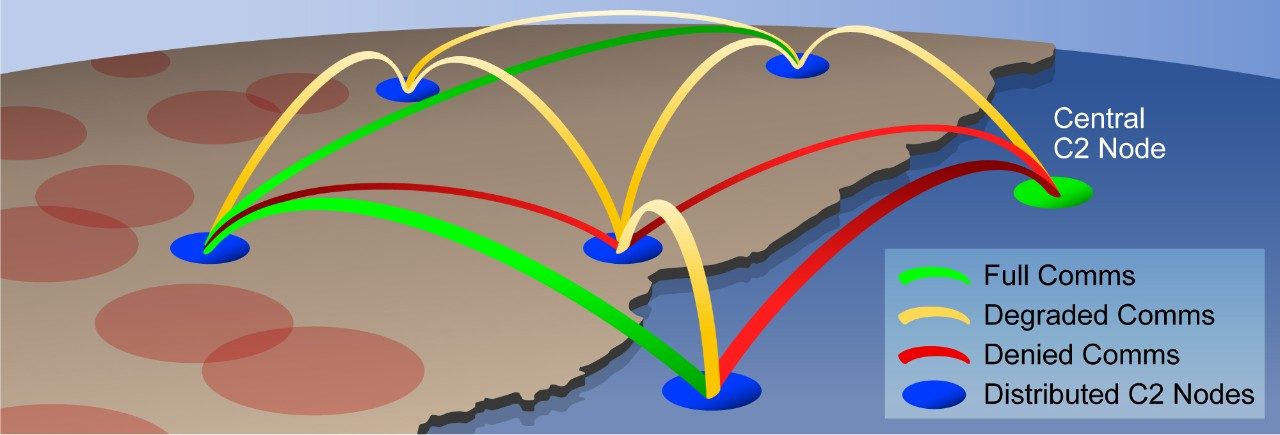Denied/Degraded Environments Command and Control Services (DECS)

DESCRIPTION
DECS enables decentralized command and control (C2) in denied or degraded communications environments at multiple distributed control nodes (DCNs). It optimizes allocation for strike and SEAD missions through a bidding mechanism across DCNs while persisting commander’s guidance to ensure effects-based planning. DECS minimizes plan differences between disconnected DCNs, minimizing plan reconciliation effort and plan changes upon reconnecting. DECS was initially developed as part of AFRL/RI’s DistrO program. It is currently a TRL 4-5 capability: demonstrated with 8-10 DCNs, planning for ~750 Joint Desired Point of Impact (JDPI) in under 15 minutes.
SOFTWARE SERVICES
Market-based Allocation:
Provides all-domain resource allocation and reallocation robust against uncertainties of the operational environment conditions in real-time. It allows assets to switch tasks while minimizing ripple effects.
Plan Repair:
Rapidly adapts plans in response to actual or projected plan failures. Our hierarchical task network (HTN) planner recovers and exploits structured plan rationale (e.g., strategy-to-task linkages) to minimize plan changes, ripple effects, and costs.
Assumption-based Planning:
Enables nodes to continue developing plans while staying coordinated to the largest degree possible even with disconnected peer nodes, by using proxies to emulate peer planning decisions.
Resync:
Communications established between nodes, allowing for rapid resynchronization through plan quality metrics. Identifies high-quality plan fragments, plans divergence metrics, quantifies plan differences, reconciles multiple disparate plans with minimal changes to these divergent plans.
VALUE TO OPERATIONS
Enables employment of forces in unpredictable and novel ways to create fog and decision-complexity on the adversary
Loosely coupled forward nodes capable of independent, disconnected C2 aligned to commander’s objectives
Rapid resynchronization of distributed nodes with minimal unit perturbation
Ability to respond rapidly to changes in an operational environment
Plan generation with less experienced personnel
Transparency in DECS reasoning furthering trust in the system

Contact Information
We're engineering a better tomorrow.
Your individual skills play a critical role in changing the way the world works and helping us develop products that make it a safer place to achieve your goals. Our teams are made up of diverse employees from a wide range of disciplines and backgrounds, working together to tackle complex challenges and push the boundaries of innovation.
Explore our skill areas to find the right opportunity for you.






